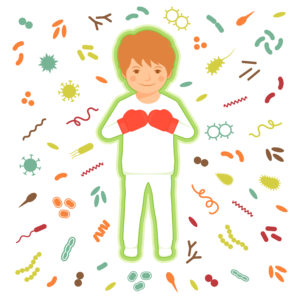
The allergy treatment sure depends on the nature of your allergic reactions. First of all, you need to figure out how much the allergy affects your life. As a matter of fact, some people have allergic rhinitis (allergy in the nose only) all life, and do not bother doing anything about it rather than use OTC antihistamine pills when the condition gets too annoying. Is this OK? Well, as humans we have a high level of tolerance, so whatever is not a burden should be probably left alone. Now, how about being congested and not being able to breathe, having a headache and restless nights? I would say – now is the time to see an Allergist.
Allergy that affects the quality of life and performance should be and can be treated!
In fact, we offer ground-breaking protocols of the immunotherapy – they are medication-free and 100% biological treatments! These treatments are tailored to treat your specific allergy. We use biological serums containing extracts from the allergens that cause a problem.
There are two types of traditional allergy treatments based on the idea of fixing immune tolerance:
We suggest you discuss these treatments with your Allergist after you receive the skin test results. If all tests come in negative, the immunotherapy may not be for you. But there are other treatments available:

Allergy shots correct the immune system function. Immune cells stop attacking environment (which is now ‘tolerated’). That means you return back to enjoying nature, having pets and not worrying about allergy or asthma attack. You immune system goes back to the crucial functions of protecting your body from:
We create individual plan of the immunotherapy that will fit your lifestyle and work.
Our clinic provides unique schedules:
Allergy shots for out-of-state or traveling patients:
Transfer allergy shot services for traveling patients and students;
Allergy shots administration if your prescription was made by another physician.
Every person is unique. Even the same disease will affect differently each of us. Fundamental knowledge of medicine and sufficient time spent with each patient leads to individual treatment plans which brings amazing results.
Our Clinic provides the best modern testing and treatment equipment the can provide detailed information on airborne and food allergies.
Dr Kushnir combines individual prescriptions tailored to your specific allergy – that is why it always works!

While many people call their health problems “allergy”, few really know what exactly it means. Let’s discuss what allergy is.
Traditionally doctors consider the inflammation that is caused by ‘sensitization to protein’ in the body an allergy, when the Mast cell releases histamine. This may seem as too simple of a process to a top notch Allergist who spent many years studying thick books about allergic cells.
However, there is no consensus what are root causes of the inflammation and doctors from many other specialties may have no idea about a bodily response to a trigger. And it is no surprise, people attribute the word ‘allergy’ to many things.
It depends pretty much on what is causing the symptoms. For example, a person who is allergic to a cat will most likely experience:
No, they can vary from sneezing to severe asthma attack and hives. Why would your symptoms be different from time to time? Indeed, the more time you spend with the cat and the more the cat is shedding, the worse your symptoms will be. Also, it depends on your state of mind. Imagine that! The symptoms can be much worse if you are upset, stressed out, or too excited.
Why did I suddenly develop an allergy?

Many of our first-time patients ask this question. Sure, it is easy to understand what causes a cold this is when you get a bug from an infected person. Is allergy contagious? Not at all. However, it does run in the family. But an explanation for that is genetics – some people carry a gene that makes them ‘atopic’.
Atopy is the condition of the immune system that is just more reactive and aggressive. So instead of a normal “tolerance” that allows us to tolerate so many proteins around us, a baby with atopic immune system will react to the new pet or food with allergic (attacking) reaction.
As we discussed, allergy is a symptom of the immune system dysfunction. That means that people even with completely normal immune systems can develop allergy later in life. Only in this case it does not happen without a cause. Usually, there is something that throws our immune system ‘out of balance’. What are possible culprits?
Here are a few examples:
Our Allergists are the best “detectives” who always want to go to the roots of your health problem because if you can find and avoid the allergen, all problems will stop! As you can see now – if your immune system does not ‘meet’ the allergen, it will not fight it and you will not show any symptoms.
Knowing what exactly triggers your sudden allergy also will help you in the future to avoid any exposure f to the harmful environment or develop stress-reducing techniques.